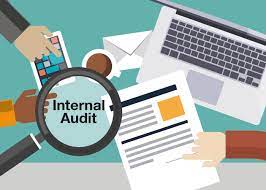Introduction:
The appointment of internal auditor in Listed company holds paramount importance. The internal audit function plays a critical role in assessing the company’s internal controls, risk management processes, and compliance with laws and regulations. This article will provide a comprehensive guide to the appointment of an internal auditor in a listed company, focusing on the internal audit process and its significance.
Table of Contents
Understanding the Internal Auditor Function
Internal Audit: Internal audit refers to the independent, objective evaluation of a company’s operations, processes, and controls. It provides valuable insights into the company’s risk exposure, and the effectiveness of internal controls, and identifies areas for improvement.
Internal Auditor: An internal auditor is a professional responsible for conducting internal audits within an organization. They ensure compliance with policies, procedures, and regulatory requirements while providing recommendations for enhancing operational efficiency and mitigating risks.

Importance of Internal Auditor in Listed Company
- Enhanced Risk Management: The internal audit function helps identify and assess risks faced by the company, enabling effective risk management strategies to be implemented. By conducting comprehensive risk assessments, internal auditors help safeguard the company’s assets and ensure business continuity.
- Strengthened Internal Controls: Internal auditor in listed company evaluate the effectiveness of internal controls to prevent fraud, errors, and inefficiencies. They identify control gaps and recommend enhancements, ensuring the company’s operations are aligned with industry best practices and regulatory requirements.
- Compliance with Laws and Regulations: In a listed company, compliance with laws and regulations is crucial. Internal auditors play a vital role in evaluating the company’s compliance framework, identifying non-compliance areas, and suggesting corrective actions. This helps the company avoid legal and reputational risks.
- Improved Operational Efficiency: Through the internal audit process, internal auditors assess the efficiency of operational processes and systems. By identifying bottlenecks and streamlining procedures, they contribute to cost reduction, process optimization, and overall operational excellence.
Appointment of Internal Auditor in Listed Company
- Regulatory Requirements: Listed companies must comply with regulatory guidelines regarding the appointment of internal auditors. Regulatory bodies, such as securities commissions, may outline specific qualifications and experience required for internal auditors.
- Selection Process: The selection of an internal auditor involves a comprehensive evaluation of candidates’ qualifications, experience, and expertise in internal auditing. The company’s audit committee or board of directors typically oversees the selection process.
- Independence and Objectivity: Internal auditors must maintain independence and objectivity in their roles. They should not have any conflicts of interest that could compromise their ability to provide unbiased and objective assessments of the company’s operations and controls.
- Audit Plan and Execution: Once appointed, the internal auditor develops an audit plan outlining the scope, objectives, and timeline of audits. The auditor conducts fieldwork, including data analysis, interviews, and document reviews, to gather evidence and assess the effectiveness of controls.
- Reporting and Recommendations: After completing the audit, the internal auditor prepares a comprehensive report detailing findings, recommendations, and action plans. The report is shared with management, the audit committee, and other relevant stakeholders, helping drive improvements and enhance governance practices.

Process involved in Appointment of Internal Auditor in Listed Company
- Define the Role and Scope: The first step in appointing an internal auditor in listed company is to define the role and scope of the position. This includes determining the responsibilities, reporting lines, and the areas of the company to be audited.
- Establish Qualifications and Experience Criteria: Listed companies must establish qualifications and experience criteria for internal auditors. These criteria may include professional certifications, relevant experience, knowledge of regulatory requirements, and industry-specific expertise.
- Advertise and Recruit: Once the criteria are established, the company advertises the internal auditor position. This can be done through job portals, professional networks, or recruitment agencies. Applications are reviewed, and suitable candidates are shortlisted.
- Conduct Interviews and Assessments: Shortlisted candidates are invited for interviews to assess their qualifications, experience, and compatibility with the company’s culture. Additionally, assessments may be conducted to evaluate their auditing skills, problem-solving abilities, and knowledge of internal controls.
- Review References and Background Checks: Before finalizing the appointment, it is essential to conduct reference checks to verify the candidate’s credentials and past work performance. Background checks may also be performed to ensure the candidate’s integrity and credibility.
- Board Approval: Once a suitable candidate is identified, the appointment is subject to the approval of the board of Directors. The board reviews the candidate’s profile, qualifications, and recommendations from the hiring committee before granting approval.
- Onboarding and Orientation: After the appointment is approved, the internal auditor in listed company undergoes an onboarding process. This includes familiarizing them with the company’s operations, policies, procedures, and introducing them to the key stakeholders.

Who Qualifies as Internal Auditor in Listed Company?
According to the SEBI (Listing Obligations and Disclosure Requirements) Regulations, 2015 (LODR), the qualifications required for an individual to serve as an internal auditor in listed company are outlined as follows:
- Chartered Accountant (CA): An individual who is a member of the Institute of Chartered Accountants of India (ICAI) and holds a valid Certificate of Practice (CoP) issued by the ICAI can qualify as an internal auditor in a listed company. The CA must have relevant experience and expertise in accounting, auditing, and internal control systems.
- Cost Accountant (CMA): An individual who is a member of the Institute of Cost Accountants of India (ICMAI) and holds a valid CoP issued by the ICMAI can qualify as an internal auditor in a listed company. The CMA must possess the necessary skills and knowledge in cost accounting, management accounting, and internal control systems.
- Company Secretary (CS): An individual who is a member of the Institute of Company Secretaries of India (ICSI) and holds a valid CoP issued by the ICSI can qualify as an internal auditor in a listed company. The CS must have expertise in corporate laws, governance practices, and internal control mechanisms.
It is important to note that the qualifications mentioned above should be accompanied by relevant experience and expertise in conducting internal audits. The internal auditor must possess a good understanding of the company’s business, processes, and regulatory requirements.
Furthermore, as per the LODR, the internal auditor must be independent and impartial in carrying out their responsibilities. They should not have any financial or personal interests that could compromise their objectivity or independence while performing internal audits.
Listed companies are responsible for ensuring that the internal auditor possesses the required qualifications and complies with the eligibility criteria as specified by the LODR. The appointment of the internal auditor is subject to the approval of the audit committee and the board of directors of the listed company.
It is worth mentioning that the specific requirements and qualifications for internal auditors may vary based on the applicable regulations and guidelines issued by regulatory authorities such as SEBI. Therefore, companies should stay updated with any amendments or modifications to the LODR and other relevant regulations governing the qualifications of internal auditors in listed companies.
Significance of work: Internal Auditor in listed Company
The role of an internal auditor in listed company holds significant importance. The following are key reasons highlighting the significance of their work:
- Enhancing Internal Controls: Internal auditors play a crucial role in evaluating and enhancing the effectiveness of internal controls within a listed company. They identify control weaknesses, assess their impact on the organization’s operations, and recommend improvements. Strong internal controls help safeguard assets, prevent fraud, and ensure accurate financial reporting.
- Risk Management: Internal auditors assist in identifying and assessing risks faced by the listed company. They evaluate risk management processes, analyze potential risks, and provide recommendations to mitigate them. By proactively managing risks, internal auditors contribute to the company’s ability to achieve its strategic objectives while minimizing potential disruptions.
- Compliance with Regulations: Compliance with regulations is essential for listed companies. Internal auditors assess compliance with laws, regulations, and industry standards to ensure the company operates within the legal framework. They help identify areas of non-compliance and recommend measures to address any deficiencies, reducing the risk of penalties, fines, and reputational damage.
- Financial Reporting Integrity: Internal auditors play a critical role in ensuring the integrity and accuracy of financial reporting within a listed company. They assess the reliability of financial information, review accounting practices, and verify compliance with applicable accounting standards. By providing independent assessments, internal auditors enhance the reliability and credibility of the company’s financial statements.
- Operational Efficiency: Internal auditor in listed company evaluate operational processes within the listed company to identify areas for improvement. They review workflow, analyze resource allocation, and identify opportunities for cost optimization and efficiency enhancement. By suggesting process improvements, internal auditors contribute to streamlined operations and improved productivity.
- Fraud Prevention and Detection: Internal auditors play a significant role in preventing and detecting fraudulent activities within a listed company. They assess fraud risks, design controls to mitigate those risks, and perform investigations when fraud is suspected. Their proactive approach helps protect the company’s assets and reputation.
- Stakeholder Confidence: The work of internal auditor in listed company instills confidence in stakeholders, including shareholders, investors, and regulatory authorities. Their independent assessments and recommendations contribute to transparent governance practices, ensuring accountability, and enhancing stakeholder trust.
In conclusion, the work of internal auditor in listed company is of significant importance. They contribute to enhancing internal controls, managing risks, ensuring compliance, maintaining financial reporting integrity, improving operational efficiency, preventing fraud, and building stakeholder confidence. Their efforts are instrumental in promoting transparency, accountability, and the overall success of the listed company.

